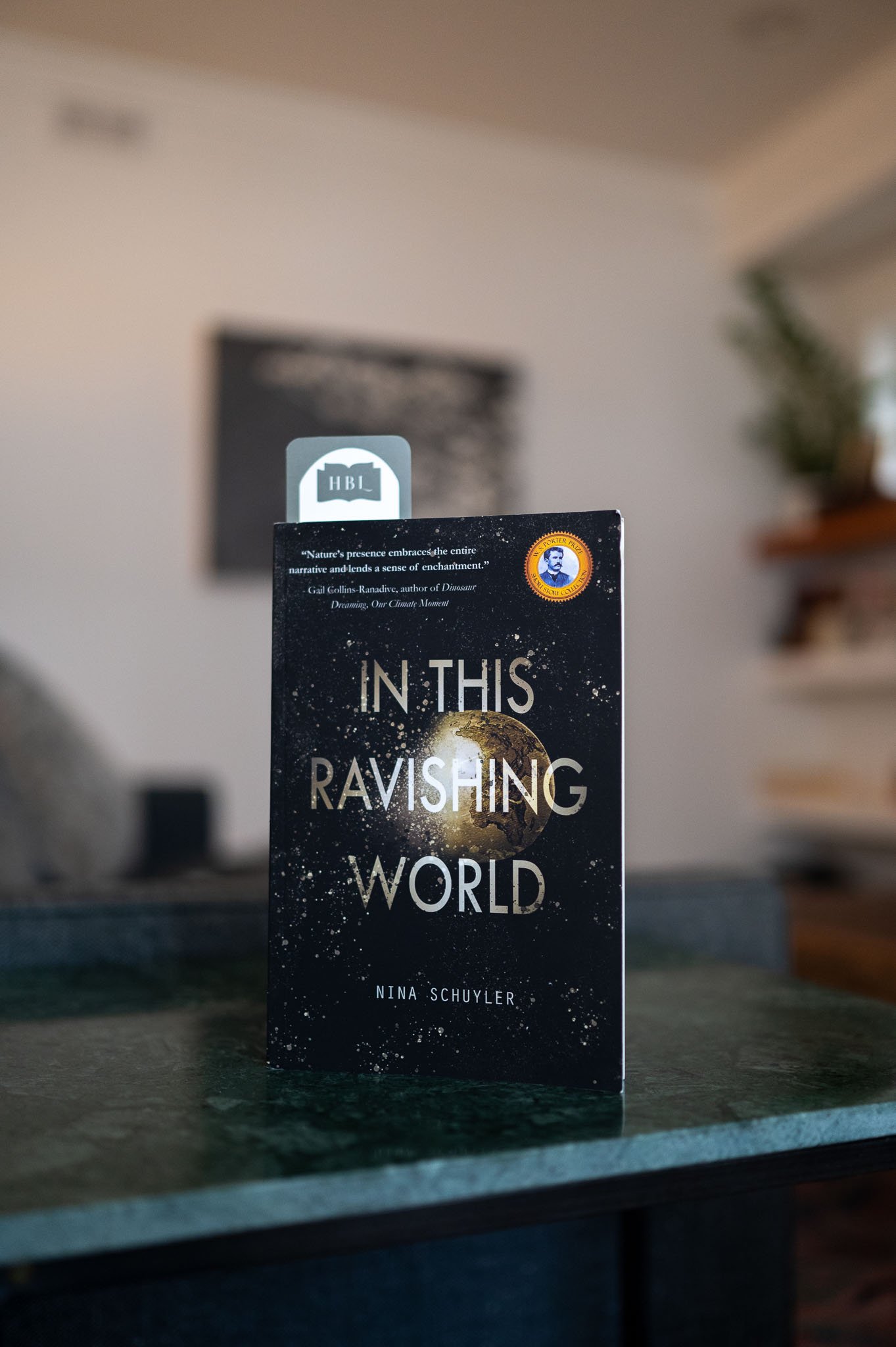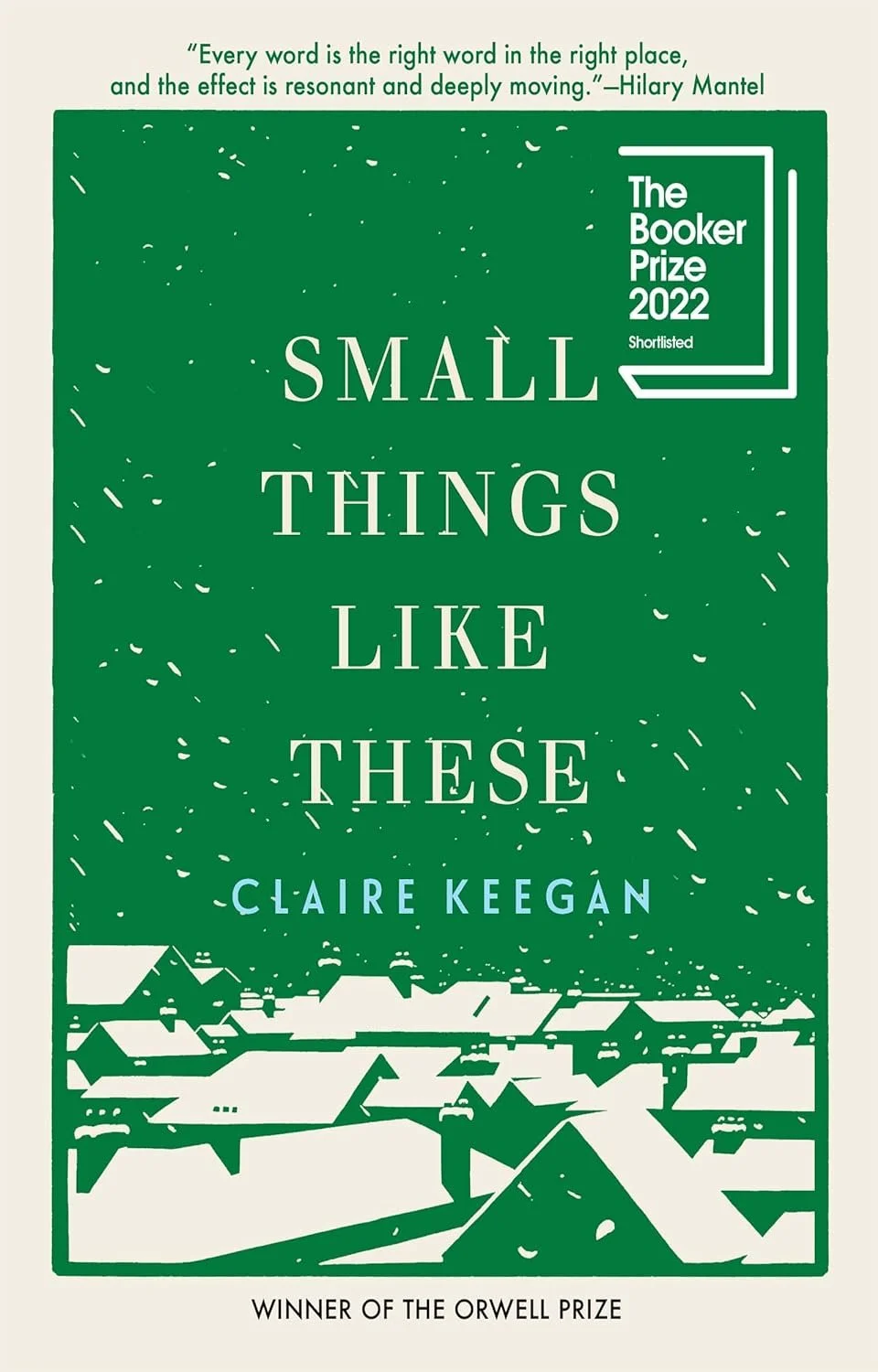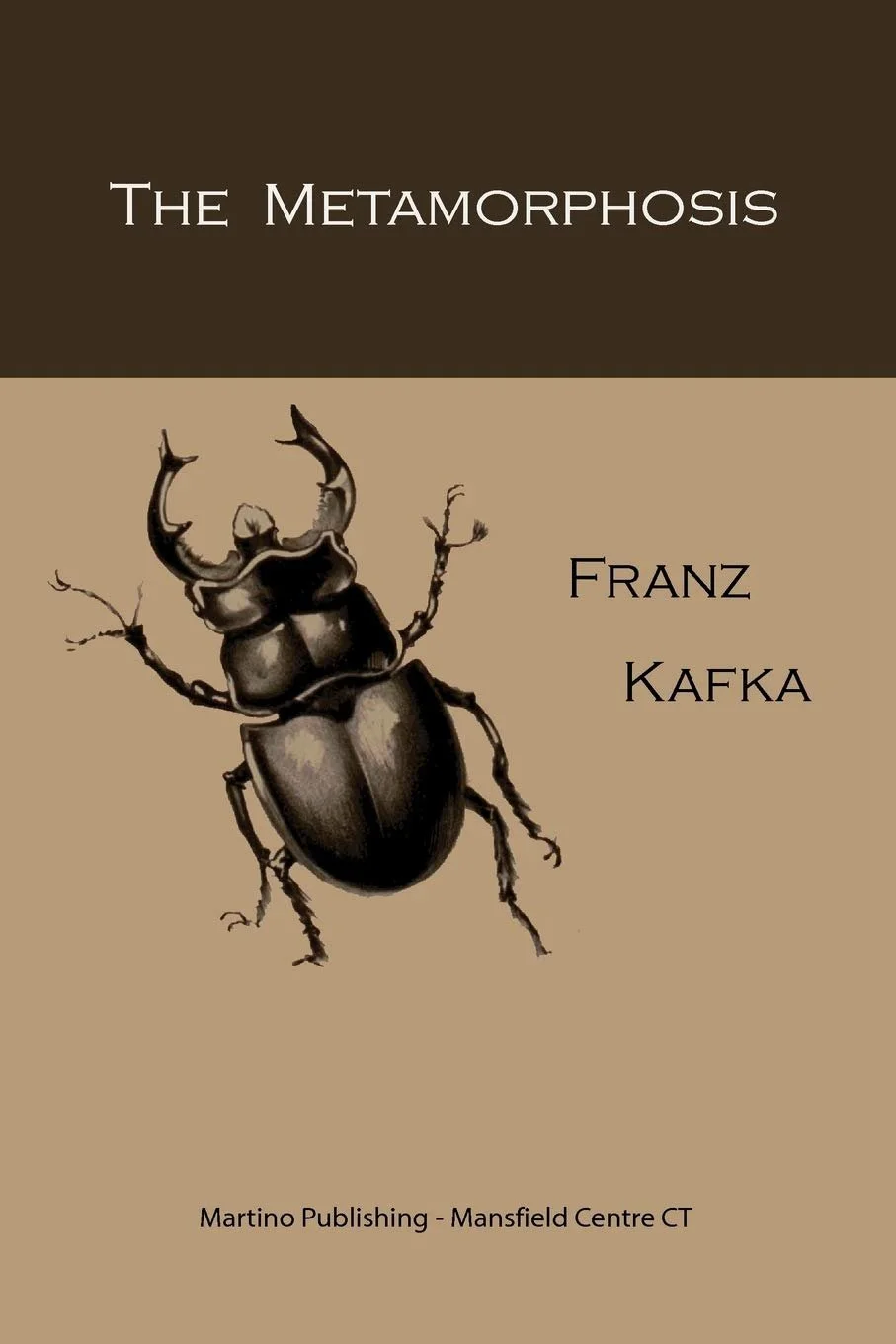Nina Schuyler
Author Interview - Nina Schuyler
Author of IN THIS RAVISHING WORLD
In this short story collection, nine connected stories unfold, bringing together an unforgettable cast of dreamers, escapists, activists, and artists, creating a kaleidoscopic view of the climate crisis. An older woman who has spent her entire life fighting for the planet sinks into despair. A young boy is determined to bring the natural world to his bleak urban reality. A scientist working to solve the plastic problem grapples with whether to have a child. A ballet dancer tries to inhabit the consciousness of a rat. That's just a few of the characters who populate this book. It’s a full-throated chorus, with Nature joining in, marveling at the exquisite beauty of our world, and pleading, raging, and ultimately urging everyone toward activism and resistance.
Author Interview - Nina Schuyler
Author I draw inspiration from:
It’s impossible to single out one! Claire Keegan's novella Small Things Like These is a masterpiece of compression. The right and exquisite details convey so much in so few pages, and in those pages, so much heartfelt grace unfolds. This tone helped me write and revise the voice of Nature, yes, Nature who has a voice in my book. For the same reason, Elizabeth Strout’s stories, especially her novel, Olive Kitteridge. Olive burst on the literary scene, raging with complexity—a female character who was angry! I loved her. She reminds me to complexify my female characters. And the design of Olive Kitteridge helped me figure out the structure of my book. Right now, I'm re-reading short stories by Alice Munro (RIP) and am falling in love with her work again. She beautifully depicts the rich interior of women so well, the tangle of desires that are often in conflict. It isn’t easy being female, she reminds us. And Ursula K. Le Guin, who anthropomorphized an oak tree in the story in "Direction of the Road." And in her short story "Mazes," told from the perspective of a lab animal. These stories, among others, inspired me to anthropomorphize Nature in my book, with the hope that the human heart will fall in love with the natural world and be moved to act.
Author Interview - Nina Schuyler | Author I Draw Inspiration From
Favorite place to read a book:
Oh, this is easy. In bed. My young son is asleep and the two dogs are snoring and my husband is reading beside me. He's tucked away in the world of nonfiction whereas I'm in the world of fiction, my imagination flying. That's a beautiful night.
Book character I’d like to be stuck in an elevator with:
Gregor Samsa from Franz Kafka's "The Metamorphosis". Yes, that Gregor who is a salesman and wakes one morning to find himself inexplicably transformed into a huge insect. I’m in the elevator, dreamily watching the numbers slip down, 6, 5,4, and ping the door opens, and there is the Gregor/insect, shiny brownish black, scuttling into the elevator. By the time I meet him, he’s learned to speak English. “I’ve often wondered about you,” I say. “Thank god our paths have crossed. You have to tell me how is it to be an insect? How different is it from being human? We humans seem to have forgotten or denied our animalness and I’m curious in this blended form—I’m sorry this happened to you--what you’ve discovered.” Gregor/insect studies me, smells me, senses I mean no harm and will not, unlike his cruel father, throw an apple at him and injure his exoskeleton. “Lady,” he says. “Have a seat.”
Author Interview - Nina Schuyler | Book Character I’d Like to be Stuck in an Elevator With
The moment I knew I wanted to become an author:
For years, I worked as a legal news reporter. Because of space constraints, the editors always seemed to cut my favorite details: a lawyer’s strange cackle, the way he smacked his lips after each long monologue, his words beating like a drum full of confidence and bravado. Or the stiff-legged walk of a judge as he headed into court, as if reluctant, as if he’d seen one too many defendants and didn’t want to see another one. Not today, not ever. All of that cut cut cut. I wondered.. what if.. could I? Could I write a short story and include these details? That was the little seed, the beginning when I fashioned little stories from the smallest details, discovering how much a gesture, a glance, a pronunciation could make a character come alive. I fell in love with the inventive process. So it began.
Hardback, paperback, ebook or audiobook:
Hardback: Love the physicality of it. A definite weight in your hand, a feeling of significance, of import, this book has substance and must be read and I will read it. Dislike: the weight of it, like a rock in my backpack making my low back ache and my shoulders throb.
Paperback: Love the physicality of it. A light weight, a feeling that there is substance, but it isn’t an inconvenience. Carry me anywhere, everywhere, the paperback says. Dislike: the light weight of it, how easily it can tear and bend and suddenly the cover is gone. And what happened to page 12? Where did it go?
Ebook: I have never read an ebook. Not once. Can you believe it?
Audiobook: Love that I can drive for hours and someone tells me a story, often someone with a melodious voice. The dull hours are enlivened, rich with drama and conflict and suspense because of the mesmerizing voice talking to me in the car. Dislike: When driving, you have to pay attention to other people in cars around you. There is the possibility of collision. Or driving over a cliff. I miss part of the story. I have to fill in the blank and suddenly I’m not as engaged anymore.
The last book I read:
The Great Derangement: Climate Change and the Unthinkable, by Amitav Ghosh. In this nonfiction book, Ghosh looks at our inability—at the level of literature, history, and politics—to grasp the scale and violence of climate change. I found his insights about literature incredibly eye-opening. I have felt this, but hearing someone else say this makes me feel I’m on the right track. He argues we’ve limited literature, at least in the West, to the singular hero’s journey, which is one of growth and transformation. What we call serious literature often leaves out the collective and, importantly, our relationship to nature. What I took from this is that the climate crisis begs us to imagine other forms of storytelling to confront the most urgent and difficult problem humanity has ever faced.
Author Interview - Nina Schuyler | The Last Book I Read
Pen & paper or computer:
Both. The computer and I are well suited because I can type as fast as my thoughts. This is convenient because nothing feels precious. It’s easy to write and write and get the words on the page for that first draft. If I have to throw most of it out, fine; at least I’m figuring things out—characters, place, relationships. For my first draft, I sometimes type with my eyes closed. My external surroundings disappear, and I’m immersed in the imaginative space (which is so lovely). Sensory deprivation in one world leads to sensory immersion in the fictive world.
When a scene isn’t working, I move to paper—a sketchbook without lines. There is something about lines that make me feel mad, as if someone is trying to contain me. Anyway, by moving off the computer, I’m out of the story's shape, and it frees me up again to imagine more wildly.
Book character I think I’d be best friends with:
Nell, from Lily King’s Euphoria. Nell is a fictionalized version of the anthropologist Margaret Mead, who has always fascinated me. I think we’d get along because Nell/Margaret has a similar restless mind: curious, not satisfied with an easy answer, and bascially trying to figure out human nature. Though I can also see we wouldn’t get along because she is obsessed with her work. Then again, so am I; I am obsessed with writing, teaching, and reading. But this friendship might work because we wouldn’t feel slighted or neglected if days or weeks went by when we didn't talk or see each other. We both know the texture of obsession. Maybe we’d meet once a month, Nell and me, and we’d exchange ideas like little shimmering treasures.
Author Interview - Nina Schuyler | Book Character I’d be Best Friends With
If I weren’t an author, I’d be a:
I loved Jacques Cousteau and his TV shows, The Undersea World of Jacques Cousteau and The Cousteau Odyssey, so my dream career is to be the female version of JC and dive deep into what he called “inner space,” i.e., the ocean, full of “unworldly sights and sounds.” His ship was called the Calypso, which in Greek mythology is a type of nymph or sea spirit, so I’d travel the seas on that ship. Ideally, I’d speak French and when I spoke English, I'd have a seductive French accent.
Favorite decade in fashion history:
Half the time I don’t know what I’m wearing. I know I have clothes on, but what? I wear whatever is clean and findable in my messy drawer. Or what I wore yesterday. Or what’s easy. I recognize this approach has a high degree of freedom, and not every era was like this for women. The girdle, for instance. What is a girdle? The corset? Body parts pulled in or pushed out. So much work! So now, I guess I can say my favorite decade is right now, because as a woman, there is freedom to allow me not to care about all this.
Place I’d most like to travel:
I’d love to go to New Zealand, this ideal, sought-over land, like a promised land, where the rich are buying up huge swathes with the hope of escaping climate change.
My signature drink:
Coffee. Coffee. Coffee.
Favorite artist:
I have many, but lately I am so intrigued by Isaac Cordal, a Spanish Galician artist who is a sculptor and photographer. I first encountered his work in Berlin, and his absolutely mind-stopping installation called “Politicians Discussing Climate Change.” You might have seen it: a gathering of miniature men, mostly bald, white, in business suits. Some are underwater; some will soon be underwater. I remember standing there with a crowd, everyone silent, staring at the artwork, absorbing what would happen if we did nothing about climate change. His small cement sculptures of humans can now be found in public spaces across Europe. You feel their fragility, which makes you care, and you feel the strained relationship with nature and the external world.
Number one on my bucket list:
I boogie board, so the feeling of riding a wave is in my body. (And it stays there long after, even in my dreams.) I’d like to learn how to surf. Not the big waves, no, but the small ones, enough roll to them to stand on water and glide. It’s beautiful to watch, these women who surf and look to me like ballet dancers moving on a liquid blue floor, a blue backdrop of sky.
Anything else you'd like to add:
Thank you!!
Find more from the author:
Insta: @ninaschuyler
Twitter: @Nina_Schuyler
Facebook: https://www.facebook.com/nina.schuyler
Bluesky:ninaschuyler.bsky.social
About Nina Schuyler:
Author Interview - Nina Schuyler
Nina Schuyler’s short story collection, In This Ravishing World, won the W.S. Porter Prize and the Prism Prize for Climate Literature and was published on July 2, 2024. Her novel, Afterword, was published last year and won the Foreword INDIES Book of the Year Award for Science Fiction and Literary. It also won the PenCraft Seasonal Book Award for Literary-Science Fiction. Her novel, The Translator, was shortlisted for the William Saroyan International Prize for Writing and the Northern California Book Award. Her short stories have been published by Zyzzyva, Fugue, Nashville Review, Your Impossible Voice, Santa Clara Review, and elsewhere. She teaches creative writing for Stanford Continuing Studies and The Writing Room.










